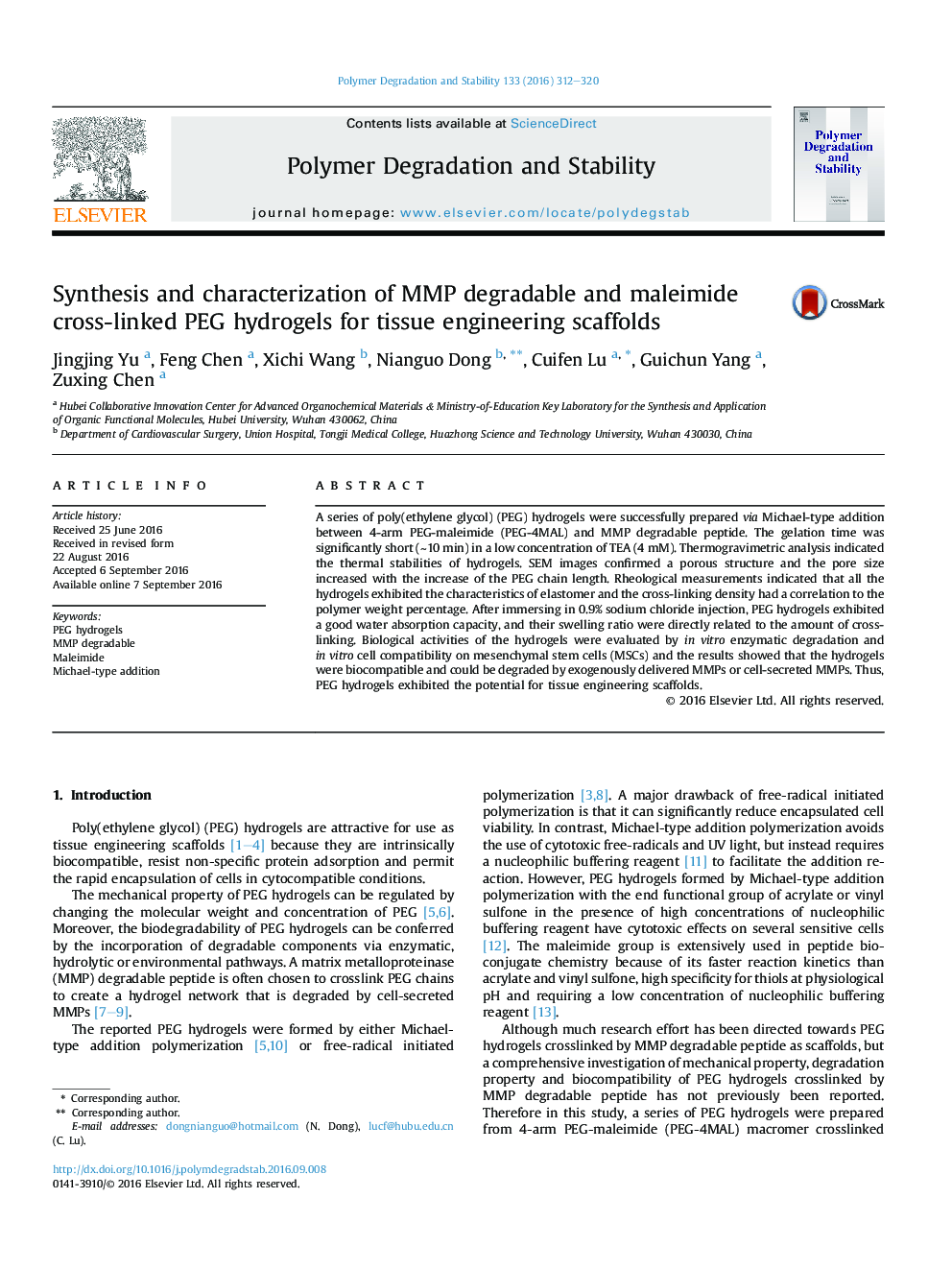| Article ID | Journal | Published Year | Pages | File Type |
|---|---|---|---|---|
| 5200976 | Polymer Degradation and Stability | 2016 | 9 Pages |
Abstract
A series of poly(ethylene glycol) (PEG) hydrogels were successfully prepared via Michael-type addition between 4-arm PEG-maleimide (PEG-4MAL) and MMP degradable peptide. The gelation time was significantly short (â¼10 min) in a low concentration of TEA (4 mM). Thermogravimetric analysis indicated the thermal stabilities of hydrogels. SEM images confirmed a porous structure and the pore size increased with the increase of the PEG chain length. Rheological measurements indicated that all the hydrogels exhibited the characteristics of elastomer and the cross-linking density had a correlation to the polymer weight percentage. After immersing in 0.9% sodium chloride injection, PEG hydrogels exhibited a good water absorption capacity, and their swelling ratio were directly related to the amount of cross-linking. Biological activities of the hydrogels were evaluated by in vitro enzymatic degradation and in vitro cell compatibility on mesenchymal stem cells (MSCs) and the results showed that the hydrogels were biocompatible and could be degraded by exogenously delivered MMPs or cell-secreted MMPs. Thus, PEG hydrogels exhibited the potential for tissue engineering scaffolds.
Related Topics
Physical Sciences and Engineering
Chemistry
Organic Chemistry
Authors
Jingjing Yu, Feng Chen, Xichi Wang, Nianguo Dong, Cuifen Lu, Guichun Yang, Zuxing Chen,
